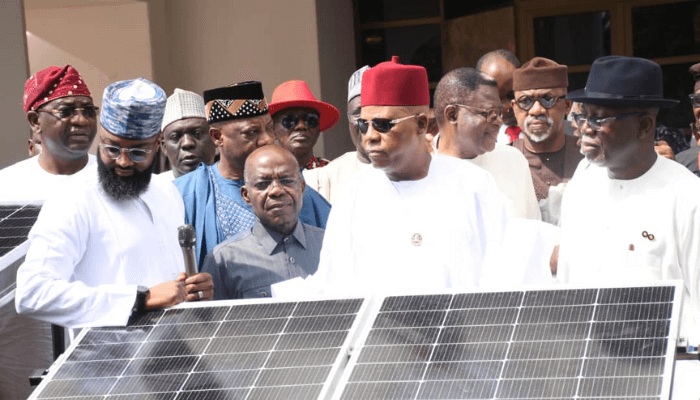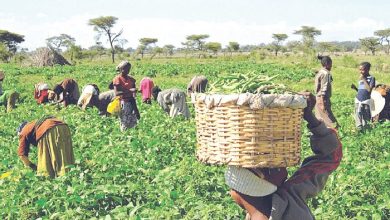NEC Endorses Solar Irrigation Pumps To Strengthen Nigeria’s Food Security
NEC approves nationwide rollout of NASENI’s solar-powered irrigation pumps to cut farmers’ fuel costs.
Vice President Shettima says the innovation will boost dry-season farming, incomes and climate resilience.
The National Economic Council (NEC) has endorsed the nationwide rollout of solar-powered irrigation pumps developed by the National Agency for Science and Engineering Infrastructure (NASENI), in a move aimed at boosting food production and reducing farmers’ reliance on costly petrol-powered pumps.

The decision was reached at the 152nd NEC meeting, held on Thursday at the Presidential Villa, Abuja, and presided over by Vice President Kashim Shettima.
Shettima described the innovation as proof of Nigerian ingenuity.
“NASENI’s scaled-up solar irrigation pumps are ready for national rollout ahead of the 2025 dry season. These pumps replace expensive petrol-powered systems, lower farmers’ costs, expand dry-season cultivation, and even provide backup power for households,” he said.
He added that the pumps, which come with GPS tracking, mobile app dashboards, usage monitoring, and pay-as-you-go integration, will not only boost agricultural productivity but also open carbon credit opportunities for farmers.
The Council directed the Minister of Budget and Economic Planning, Senator Atiku Bagudu, to develop funding modalities that will enable NASENI to mass-produce and distribute the pumps ahead of the dry season.
Shettima also highlighted other federal initiatives to strengthen food security, including the insurance of 250,000 farmers across eight states, progress on the 30% Value Addition Bill, and the activation of a ₦250 billion Bank of Agriculture facility to support smallholder farmers.
The meeting also addressed broader economic and security concerns:
- Delta State Governor Sheriff Oborevwori provided updates on Nigeria’s accounts as of September 17, 2025: Excess Crude Account stood at $535,823.39, the Stabilization Account at ₦83.49 billion, and the Natural Resources Account at ₦125.82 billion.
- National Security Adviser Nuhu Ribadu briefed on an Anticipatory Action Framework for Riverine Flooding, designed to protect vulnerable households in 13 high-risk states. The framework earmarks ₦24 billion for multipurpose cash assistance, evacuation sites, and community-based resilience.
- Jigawa State Governor Umar Namadi presented a memo on the rising cost of food production, urging the government to optimize fertilizer costs and provide handheld implements to support smallholder and subsistence farmers excluded from tractor programs.
The Council emphasized the importance of risk communication at the state level, empowering State Emergency Management Agencies (SEMAs) and Local Emergency Management Committees (LEMCs) with funding, equipment, and training to strengthen response capacity.



